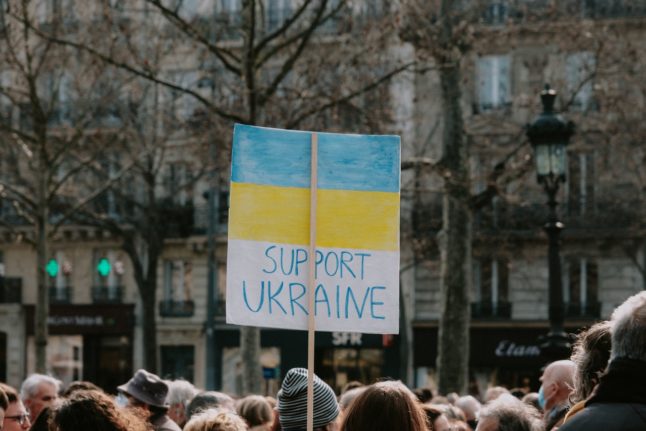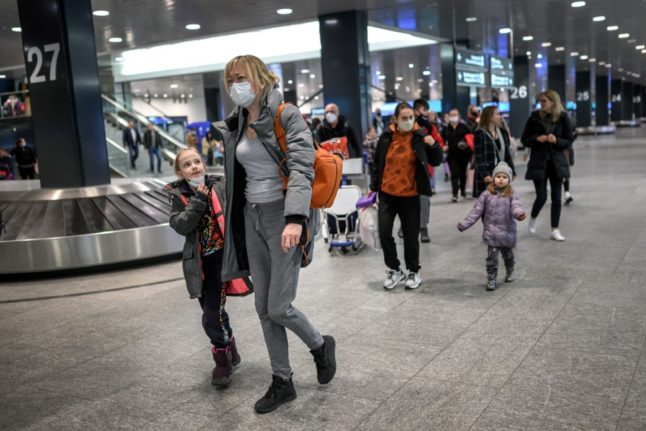More than 15,000 Ukrainians have fled to Switzerland since the beginning of Russian invasion on February 24th; up to 50,000 are expected to come here by summer.
The expectation of the Swiss government is that these asylum seekers are here temporarily. The reason for this assumption is that the vast majority of refugees are women and children who will want to return to their husbands in Ukraine when the war ends.
But what happens if, for whatever reason, they will opt to remain in Switzerland indefinitely? Could they be granted a permanent residence B permit and, further down the road, a Swiss passport? Are the rules the same as for other refugees seeking naturalisation?
Here’s what you need to know.
What is the legal status of refugees in Switzerland?
Right now people escaping Ukraine are granted a special S status — an identity document authorising a temporary residence in Switzerland, the right to immediate employment, free health care, and language courses.
READ MORE: Switzerland’s special ‘S permit’ visa program: What Ukrainians need to know
This permit is valid for one year, but can be extended.
According to State Secretariat for Migration (SEM), “after five years, persons in need of protection may receive a B residence permit, which is valid until the temporary protection is lifted”.
This means that once the situation in Ukraine is stabilised and deemed safe enough for the refugees to return there, their S or B status (if they already received the latter) will be revoked.
Does this signify that refugees can never apply for permanent residence?
As the S status has never before been activated in Switzerland, there is no clear evidence of what will eventually happen to its recipients.
Generally speaking, however, “recognised refugees are entitled to a residence permit B in the canton in which they are legally residing”, according to a booklet published by SEM.
“This permit is issued for one year but is, as a general rule, renewed as long as the reasons for recognising refugee status subsist. The authorities can issue a residence permit not limited in time (C) to refugees who have resided for ten years in Switzerland, if the integration criteria are met and insofar as there are no grounds for revocation. If the person is well integrated and has a good understanding of the national language spoken in the place of residence, an application for the granting of a settlement permit can be submitted after five years”.
This means that, at least in theory, if the S or B status of refugees – including those from Ukraine – is not revoked, they will be able to apply for permanent residence.
However, it remains to be seen whether (and how) this will work out in practice.
What about citizenship?
Criteria and the process of becoming a Swiss citizen are the same for refugees as for other foreign nationals. They include the length of residence, integration, knowledge of a national language, and respect for Swiss laws and values.
READ MORE: How to apply for Swiss citizenship: An essential guide
Aside from the conditions listed above, applying for social assistance in Switzerland doesn’t bode well in terms of obtaining the citizenship — unless all the money is paid back in full before applying.
READ MORE: EXPLAINED: How applying for social benefits could see your Swiss work permit cancelled
If it so happens that a Ukrainian refugee is allowed to remain in Switzerland 10 years, without their status being rescinded in the meantime, then they can apply for naturalisation, provided they meet all the criteria listed above.
However, only time will tell whether any Ukrainians will remain in Switzerland long enough to be eligible for permanent residence and citizenship.



 Please whitelist us to continue reading.
Please whitelist us to continue reading.
Member comments